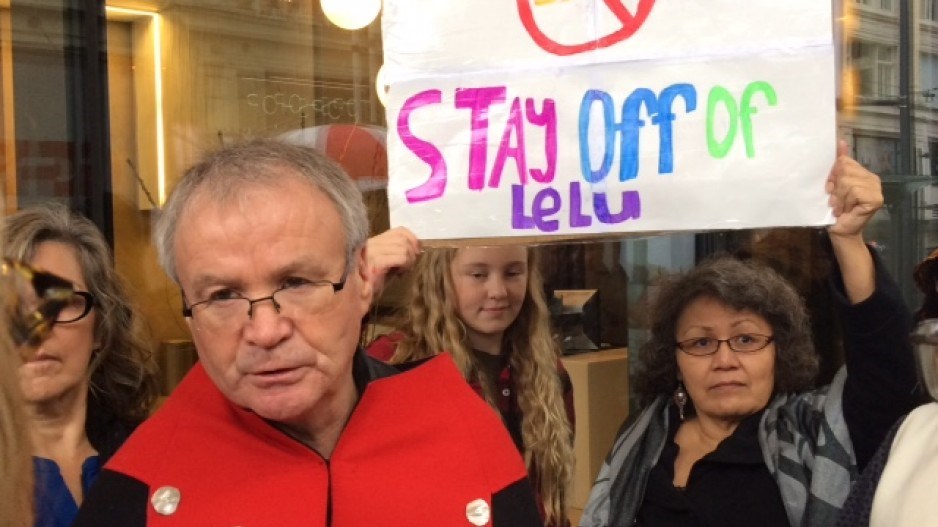Hereditary chiefs for the Gitanyow and Gitwilgyoots filed for judicial reviews of the Canadian Environmental Assessment Agency’s (CEAA) approval of the project, which includes an $11 billion LNG plant on Lelu Island.
The Gitwilgyoots tribe claims they were not properly consulted. They also say the elected band council for the Lax Kw’alaams, which represents nine tribes, including the Gitwilgyoots, have no authority to support the project.
Meanwhile, the Skeena Wild Conservation group also filed for a judicial review that challenges the CEAA and Department of Fisheries and Oceans conclusions that the plant can be built with minimal impact on fish habitat.
The total cost of building the PNW LNG plant and associated pipelines has been estimated at around $18 billion to $19 billion. That’s in addition to the roughly $8 billion it has already spent in upstream natural gas assets.
One of the court’s first order of business may be deciding if the hereditary chiefs are the proper representatives of their people.
The Gitwilgyoots, which claims Lelu Island as their traditional territory. The elected Lax Kw’alaams band council originally rejected the project, along with a $1.1 billion benefits package.
But after a change in leadership, the Lax Kw’alaams changed its position somewhat. In a letter to the federal environment minister, the elected council said that, if the project should go forward, it could support it, provided certain conditions are met.
Chief Yahaan (Don Wesley), a hereditary chief of the Gitwilgyoots, said at a press conference outside Federal Court that the Lax Kw’alaams elected band council has no authority over Lelu Island.
“The new council, they deemed that they could go out and take tribal territory and use the territory at their own discretion for oil and gas,” he said. “Our elected band council, their only jurisdiction is on reserves. Outside that jurisdiction belongs to the tribes. So we’re knocking heads with our local council.”
Robin Junger, a lawyer specializing in First Nations and environmental law, agrees that, generally speaking, elected band council authority extends only to land and governance issues with respect to Indian reserves, not traditional territory, most of which in B.C. is unceded.
“The entity that represents aboriginal groups on rights and title is determined by the collectivity itself. It’s not based on the Indian Act.”
Greg Knox, executive director for Skeena Wild, said the federal environment minister’s approval of the project was flawed.
“We have evidence to show that the Canadian Environmental Assessment Agency failed to provide solid information to both the minister of environment and to the federal cabinet to make an informed decision on this project,” he said.
He added the environmental review failed to do a cumulative climate change impact assessment.
Should the courts not side with the hereditary chiefs, Stewart Phillip, grand chief of the Union of B.C. Indian Chiefs, suggested there could be direct action by First Nations. He cited the blockades that have taken place at Standing Rock in North Dakota, where the Sioux are protesting a pipeline, as an example.
“If we cannot rely the courts to defend our land and indigenous rights, then we will have to do that ourselves,” he said. “We cannot allow this project to proceed.”
Whether the court case will add delays to the PNW LNG project remains to be seen. A number of natural gas and LNG analysts say a final investment decision on major LNG projects around the world are not likely to be taken now until 2019, at the earliest.




